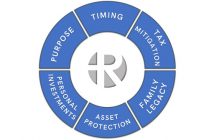For many students, the end of the school year means a break from classes and also summer jobs. For college-age students it may be an internship, high school students may be looking for spending money and even elementary school students may want the chance to make some change.
In all stages of a student’s life, this “real world” responsibility can bring an opportunity for important financial and life lessons.
College Students
• Network and “try on” different jobs and companies – With a summer job or internship, college students have the invaluable opportunity to try out different jobs. This is the time to network and gain insight to determine what kind of job and workplace they may enjoy once they receive their diploma.
• Earn tuition or spending money – With tuition on the rise, the need for a student to contribute is a factor in many families. Even if a family can afford to pay tuition, requiring a student to earn their spending money and pay off their own credit card bills is an important lesson in financial responsibility.
• Do taxes – Students who had jobs in high school understand that a cut goes to the IRS. If Mom or Dad did the paperwork in the past, this is a good opportunity to teach your child about doing their own taxes before they venture out on their own.
High school students
Introducing the idea of saving to your teen can sometimes be a difficult one. To start, create a plan that has both a saving and spending component. Decide what percentage of each paycheck will go into a savings vehicle, and an amount that can be used for spending. You can then teach the importance of tracking their contributions and income earned in the account. Seeing how their money can grow will help keep them engaged in the process.
• Investigate careers – For many teen workers, a summer job is their first experience in the work force. Working with professionals is an invaluable opportunity to learn about different careers – the education required, the salary potential, the job market. This will help toward deciding a college major and career path.
• Learn good habits – This is likely the first time that a student will have to work for someone besides Mom and Dad or a family member. A summer job teaches important job skills that will lead to future success in a career. But this is also an opportunity to develop good financial habits. Consider a checking account or debit card for your child to teach them how to manage their money. And instill the practice of saving a percentage of each paycheck toward future goals. This will habit will serve them well once they are on their own and need to divert money toward an emergency fund and retirement account.
• Understand the value of a dollar – The first venture into formal employment teaches teens a harsh lesson that not all the money they earn is theirs to keep. They may be surprised to learn how much of their paycheck goes toward FICA and the IRS. This is an opportunity to discuss topics like Social Security and Income Tax. This is also a good time to tighten up the wallet and let your teen buy their own clothes or pay for their own entertainment. Faced with a finite amount of funds, teens will reconsider what they once thought of as a basic necessity and learn how to budget.
Elementary School Students
• Gain independence – At a certain age, children want a sense of independence. Earning their own money and being able to purchase small treats using their own money provides a sense of pride and accomplishment.
• Increase life skills – At a very basic level, letting your child purchase their own items teaches essential life skills such as adding the cost of items and learning to make change. This is also an opportunity to discuss the concept of saving, spending and sharing (donating) money and helping them to allocate appropriately. You may want to consider an offer to match all or some of their savings account contributions so they can begin to learn about interest and the value of money over time.
• Learn financial responsibility – The concept of being careful with money is a concept best taught at a young age. This goes beyond the piggy bank to items of value. Rather than restoring lost items, require your children to pay a part of its replacement. Children will think twice about leaving their iTouch laying around in public where it could be stolen when they have to contribute to buy a new one.
A summer job is a student’s first look at the world beyond the safety net of Mom and Dad. Talking with children about saving money and teaching them responsible spending habits can help put them on the fast track to becoming a knowledgeable investor, which can pay dividends down the road.
This article is provided by Pamela J. Carty, AWM, a Financial Advisor at RBC Wealth Management. The information included in this article is not intended to be used as the primary basis for making investment decisions. RBC Wealth Management does not endorse this organization or publication. Consult your investment professional for additional information and guidance.
RBC Wealth Management, a division of RBC Capital Markets LLC, Member NYSE/FINRA/SIPC




